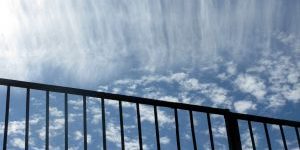Balconies and Risk of Collapse – VIC
A balcony, whether it is part of a residential or commercial property, offers many benefits to guests and property owners alike. What many owners don’t realise though is just how hazardous these structures can be. In fact, an estimated twelve thousand balconies and decking structures across Australia are at risk from collapse, which can have catastrophic consequences. Severe injuries and even death are not uncommon when a balcony collapses, and these structural failures happen more often than many property owners realise.
Protecting Yourself and Your Property from Risk of Collapse
One of the things that often make it difficult for property owners to prevent balconies from collapsing is the sheer number of factors which can lead to a collapse. Moisture damage and wet rot to timbers, corroding concrete and metal fixings, coastal air conditions, timber pests and overloading can all contribute to or independently cause balconies to weaken and eventually collapse.
In order to protect yourself, visitors to your property, and your real estate investment from damage, injury and tragedy, it’s absolutely vital to keep your balconies in good repair. This means checking for and actively working to prevent timber pest activity, keeping an eye out for any warning signs of potential damage to the structure and ensuring proper drainage to avoid wet rot. When having a new balcony constructed, it should always be designed by a professional and built in keeping with local guidelines after obtaining the requisite approval.
How to Spot Problem Balconies
Some signs of compromised structural integrity are easy for even the untrained eye to spot. Wet areas which never fully dry, visible signs of wet rot, corrosion, rusting spots and damaged supports can be easily seen and quickly remedied. The problem is, not all factors which contribute to balconies’ collapsing are so easily seen.
If you have a balcony on your property, or are having one built, it’s of vital importance that the structure be inspected by a professional building inspection company. These service providers do not offer repair services and have no financial stake in the findings of a report, so there’s no chance for conflict of interest. A qualified building inspector will look for signs of an increased risk of collapse, equipping you with the information you need to keep your balconies safe, secure and structurally sound.
Don’t allow yourself to be responsible for injury to visitors on your property, or be held liable for damages as a result of a balcony collapse.Make sure your balconies and decking are inspected by a professional and given a solid bill of health before allowing traffic, and keep loads manageable. Remember, even balconies in good repair can collapse if they’re overloaded by too many people and too much weight.
Houspect Building Inspections– Buy, Build, Invest and Sell with Confidence







